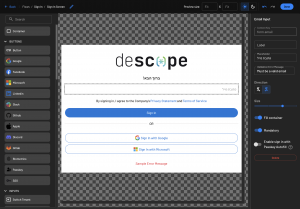Facebook’s PyTorch AI framework adds support for mobile app deployment
Facebook Inc. today updated its popular artificial intelligence software framework PyTorch with support for new features that enable a more seamless AI model deployment to mobile devices.
PyTorch is used by developers to research and build AI models for software applications, and then move those apps straight to production thanks to its integration with leading public cloud platforms. PyTorch was first built by Facebook’s AI research group as a machine learning library of functions for the programming language Python.
It’s primarily designed for use with deep learning, which is a branch of machine learning that attempts to emulate the way the human brain functions. It has led to major breakthroughs in areas such as language translation and image and voice recognition.
The ability to run machine learning on mobile devices is important because applications can benefit significantly from having lower latency. If apps can process data themselves without sending it to the cloud, it makes everything run much more smoothly, after all.
That’s what Facebook is trying to address in the latest release of PyTorch, with support for an “end-to-end workflow” from Python to deployment on iOS and Android. Facebook’s PyTorch team said in a blog post that this is still an experimental feature, and that there’s still a lot of work to do to improve the performance of machine learning models on mobile central processing units and graphics processing units.
A second experimental feature is aimed at making more efficient use of both server-side and on-device compute resources when building machine learning applications. The addition of support for “eight-bit model quantization” is an effort to improve performance during inference, which is when a trained machine learning model comes to a conclusion or makes a prediction. Quantization refers to techniques used to perform computation and storage at reduced precision.
“To support more efficient deployment on servers and edge devices, PyTorch 1.3 now supports 8-bit model quantization using the familiar eager mode Python API,” the PyTorch team wrote.
PyTorch also gets a new tool called Captum, which is designed to help developers better understand why their machine learning models come to a certain conclusion.
“Captum provides state-of-the-art tools to understand how the importance of specific neurons and layers and affect predictions made by the models,” the PyTorch team wrote. “Captum’s algorithms include integrated gradients, conductance, SmoothGrad and VarGrad, and DeepLift.”
Other updates include the release of the Detectron2 object detection library to aid with computer vision research. In addition, Facebook also announced the launch of a new, community-based research project called CrypTen that will explore the implementation of privacy and security techniques such as secure multiparty computation, trusted execution environments and on-device computation with PyTorch.
Finally, Facebook said PyTorch now supports Google Cloud’s Tensor Processing Units to enable more rapid development and training of machine learning models: “When assembled into multi-rack ML supercomputers called Cloud TPU Pods, these TPUs can complete ML workloads in minutes or hours; on other systems, those workloads previously took days or weeks.”
Analyst Holger Mueller of Constellation Research Inc. told SiliconANGLE that today’s updates show Facebook is making solid progress with PyTorch and its related services.
“The key question, though, is how much of a gap does this close for PyTorch with regards to Google’s TensorFlow?” Mueller said. “Both are moving targets, and developer adoption will provide the answer.”
Image: Facebook
A message from John Furrier, co-founder of SiliconANGLE:
Your vote of support is important to us and it helps us keep the content FREE.
One click below supports our mission to provide free, deep, and relevant content.
Join our community on YouTube
Join the community that includes more than 15,000 #CubeAlumni experts, including Amazon.com CEO Andy Jassy, Dell Technologies founder and CEO Michael Dell, Intel CEO Pat Gelsinger, and many more luminaries and experts.
THANK YOU









